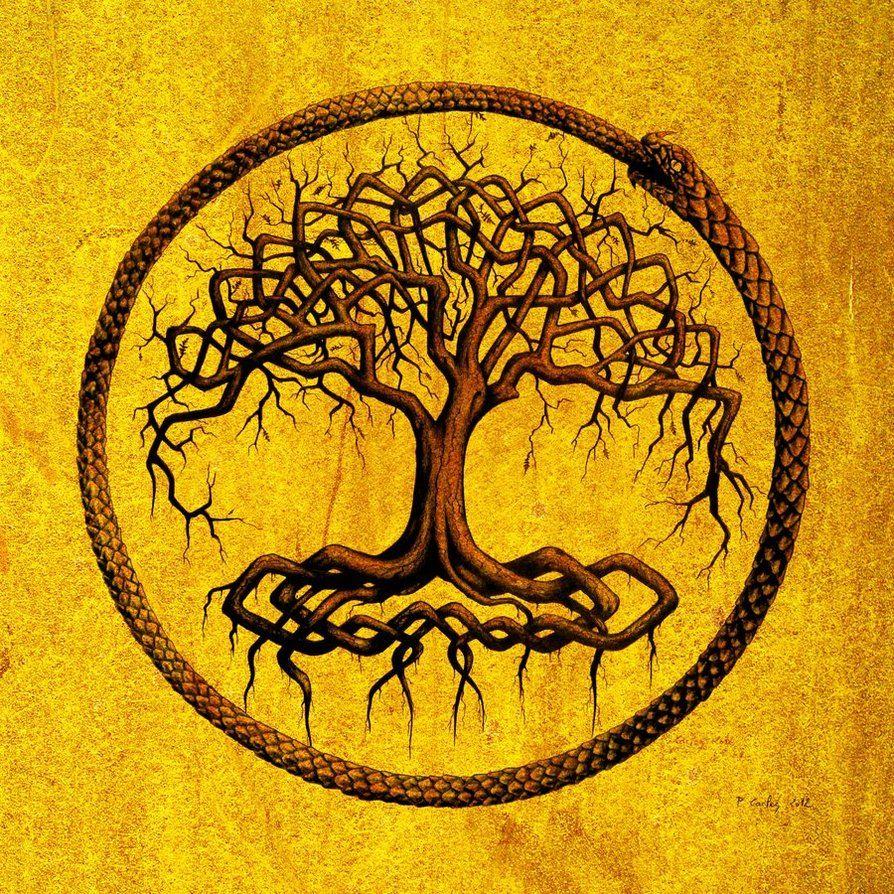Progressivism vs. The Universe: A Redwood in a Thunderstorm
Even a casual student of history understands that the world—hell, the universe—has not changed much with respect to violence over time. Maybe a better way to frame this is to say that the Big Bang is more a fan of the Fourth Crusade than of Christ and Gandhi.
One of the most common water cooler or social dinner/church potluck complaints often espoused is “how bad things are becoming.” It is important to realize that this is true only with respect to perception. I don’t know about you, but I certainly wouldn’t trade life in the 21st century for life in a Jean M. Auel novel. Things have improved remarkably since Clan of the Cave Bear days—unless you happen to be a child stuck growing up in Westboro Baptist Church.
That said, humanity has a long, long way to go.
What has changed, however, is the opportunity to spend one’s entire day watching the flame of violence unfold across the planet such that things may appear worse than ever. For whatever reason, our species appears naturally compelled by the macabre and grotesque—which is why such a genre as horror films exist and perhaps why for centuries people have turned up to watch public executions. (Maybe these things are ancient throwbacks to watching the community fire crackle.) Some people would probably still show up to watch hangings, of course, and at this point, how many of us would be the least bit surprised if some ignorant U.S. lawmaker proposed a reintroduction of the practice in the coming years?
Perhaps it is worth reminding ourselves that the last public execution in our country was as recent as 1936. The state of Kentucky is unfortunately on record for hosting this indecent spectacle, which reportedly was attended by 20,000 people. Of course, even more bizarre is the fact that the neighboring state of Tennessee sported the public execution of Mary the Elephant via industrial crane two decades prior to the hanging of Rainey Bethea.
Violence exists at the core of human history—including our various national celebrations of, and congregations to, it. Beyond that, violence is at the heart of the universe. For billions of years—even before residents of Kentucky and Tennessee could line up to see—violence has been the ruling force of all matter everywhere, from quantum particles to the cataclysm of stars.
As far as we can tell, humanity is about the only force in the immensely vast universe which has paused to reconsider the universe’s tradition of taking two things and smashing them into each other. (We are in limited company with manatees.) Left on his own, the playful boy collides two Matchbox race cars into each other to experience an imagined disaster. While an innocent act of childhood, it betrays our hominid root.
To me, this is the heart of Progressive Philosophy. First, we declare that bonking each other over the skull with battle axes is not good—that this is at best an amoral necessity and questionable to celebrate, even if violence somehow appears to promulgate peace. Then we attempt to figure out how the myriad problems on our planet and in our communities can be solved with peaceful, equitable solutions. (I’m sure both Rainey Bethea and Mary the Elephant would now agree.)
I am not suggesting that all progressives must become pacifists. As opposed as I am to violence, I cannot look you in the face and tell you that if an intruder entered my home in the dead of night, I would turn both cheeks and hand him the kitchen sink and my family. But I am suggesting that an overarching resistance to violence is where Progressivism first takes root.
In a month that included the brutal cleavering of a British soldier citizen on the streets of London and a U.S. presidential speech concerning the forward philosophy of drone executions, for some reason, Montana Representative Jeanette Rankin came to mind. Rankin was the only U.S. Congressperson who voted against the declaration of war against Japan at the beginning of World War II. My mind also wandered to Bertrand Russell and Lord Allen of Hurtwood and others in Great Britain who resisted violent response during WWI and even WWII.
History still does not know quite what to do with such individuals. I am grateful whenever global leaders emerge to utterly resist violent response. Yet such personal positions seem to buck an inner mandate to declare an enemy and defend oneself—a mandate that dates back to the beginning of life itself and is in fact a daily struggle within us. (Within our very bodies, there is an endless microbial apocalypse waged by the self.)
So, let us return again to the fact that our universe was borne from unimaginable force and continues to be shaped by that incredible force, moment by moment, distributed over inestimable billions and trillions of miles. And to the fact that the conscious life which the universe hath birthed has long mimicked such a force. Each day on our tiny blue planet, a worldwide war exists in our oceans between viruses and bacteria. Insect kingdom battles insect kingdom. Predator stalks prey. Ram butts ram for harem rights. And so on.
Then there is humanity. A list of human violence is not necessary. Most of us are students enough of our own kind. If you need reminding, simply sit at your keyboard and type terms such as “inquisition” or “holocaust” or “nanking” into a search engine.
But, one day, individual members of our species reached a point where, at different points in history and in different places, and for whatever reason, they entertained some curious thoughts:
It is wrong to injure another.
It is wrong to dominate another.
It is wrong to subjugate.
Turn the other cheek.
One should only take life when it cannot be avoided.
The presence of such philosophical consideration only represents a fraction of our time on the planet. And then, only a fraction of humans have committed themselves to following Progressive Philosophy and trying to convince others to follow it, too. (By fraction, I do not mean only a tiny number but that not all of humanity has yet made such a commitment—and that even those who have made such a commitment still can, and do, fall prey to committing acts of violence.)
It is a beautiful thing that in a universe, so vast, there is a tiny voice that has emerged that wonders whether the most ubiquitous force in the universe, the violent collision of matter, is not to be preferred.
In the aftermath of such events as the Boston bombing, the London butchering, and the millions, billions of other violent acts that occurred on our planet yesterday, and occur every day, involving all manner of life, as well as the headlines that will pummel us in the coming weeks, there is something important—AND PRODUCTIVE—about shaking one’s head at it all rather than celebrating and “memorializing” it.
Four decades ago, my uncle was sent to Vietnam for reasons that likely escaped his barely adult mind. I do not believe he died protecting freedom. Like so many millions who have died a soldier’s death, he was unnecessarily led to slaughter. Had enough people worked hard enough, gathered together enough, thought forward enough, his sacrifice would not have been necessary. His death was the wasteful result of politicians smashing Matchbox cars.
Sometimes all one can do is voice opposition to violence, take a peaceful stance, and suggest a different way. It reinforces a progressive worldview that carries all of us forward.
I am David against a Goliath universe. And I choose peace. I stand for alternative, equitable solutions to human problems. This is my personal definition of Progressivism.
Hmm. David against Goliath? Even in moments of declared peace, it is difficult to avoid violent metaphor.
So perhaps instead I should say: I am a redwood in a thunderstorm. I will stand here, and I will grow amidst the electric chaos.
For even one individual to think “there is a better way” is a brave stand against an immovable force of time, space and matter.
{Originally published on the website Forward Progressives on May 28, 2013. The website recently closed down without maintaining an archive. The original article received more than 10,000 views.}
.
- Posted by
 Arik Bjorn
Arik Bjorn - Posted in Arik's Articles
 May, 28, 2013
May, 28, 2013 No Comments.
No Comments.
I think Uber Nights is the perfect bathroom book. If there are any public libraries out there listening, I think they should put a copy in every stall.
-Read more about Uber Nights







